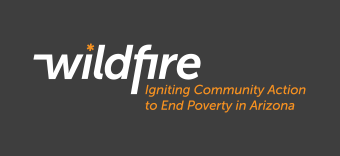Policy Updates
Federal Updates
H.R.6074 Coronavirus Preparedness and Response Supplemental Appropriations Act
Congress passed H.R. 6074 and was signed by President Trump on March 6. The legislation provided $8.3 billion in all new funding for a robust response to the COVID19, including support for state and local health agencies, vaccine and treatment development, and loans for affected small businesses to lessen the economic blow of this public health emergency.
Read the Coronavirus Supplemental Fact Sheet prepared by the Democratic staff of the House Appropriations Committee.
H.R. 6201 Families First Coronavirus Response Act
Congress passed H.R. 6201 and was signed by President Trump on March 18. Key provisions included paid sick leave, insurance coverage of coronavirus testing, nutrition assistance, and unemployment benefits. Kaiser Health News provided a summary in addition to more information on the available funding.
Read the Families First Coronavirus Response Act Fact Sheet prepared by the Democratic staff of the House Appropriations Committee.
H.R. 748 Coronavirus Aid, Relief, and Economic Security (C.A.R.E.S.) Act
Congress passed H.R. 748 and was signed by President Trump on March 27. Key provisions included new resources to help strained state, local, and tribal governments as they combat this pandemic; researching treatments and vaccines; support for small businesses; support for local schools and universities; and funding for affordable housing and homelessness assistance programs. Kaiser Health News provided an in-depth summary, including a breakdown of the $340 billion in new funding.
Read the C.A.R.E.S Act Fact Sheet prepared by the Democratic staff of the House Appropriations Committee.
H.R. 266 Paycheck Protection Program and Health Care Enhancement Act
Congress passed H.R. 266 and was signed by President Trump on April 24. Also known as the “COVID-19 3.5” relief package, H.R. 266 was originally designed to only be a stopgap measure. The package includes additional funding to support small businesses, hospitals, and enhance COVID-19 testing.
Read the Paycheck Protection Program and Health Care Enhancement Act Fact Sheet prepared by the Democratic staff of the House Appropriations Committee.
State Updates
Stay Home, Stay Healthy, Stay Connected
Governor Ducey issued an Executive Order extending Arizona’s Stay Home, Stay Healthy, Stay Connected Order until May 15, 2020. The order also continues Arizona’s gradual economic reopening, allowing retail businesses to begin partial operations starting next week. Under the order, retail businesses currently not operating can begin curbside pick-up on Monday, May 4, followed by expanded in-person operations on Friday, May 8 as long as they implement social distancing and sanitation measures established by the United States Department of Labor or the Arizona Department of Health Services. Learn more about Governor Ducey’s Return Stronger: A Gradual Step-By-Step Plan For Reenergizing Arizona.
JLBC’s Federal Coronavirus Response Legislation Program Summary
Earlier this week the JLBC released a preliminary estimate that Arizona will receive $4.6 billion in response to the COVID-19 pandemic. The funds will be distributed between state and local governments. Slightly more than half of that money will be distributed to the state, Maricopa and Pima counties and the cities of Phoenix, Mesa and Tucson through the Coronavirus Relief Fund. More information to follow as Congress is expected to pass another supplemental appropriations package.
Arizona State Legislature
Wildfire tracked over 30 bills this session but changed course when it became clear that the Legislature planned to pass a “skinny” budget amid the uncertainty of COVID-19. The Legislature passed an $11.8 billion contingency budget, including a $50 million relief fund package in response to COVID-19. Click here to view the Wildfire 2020 Tracking Sheet. The Legislature recessed following the passage of the contingency budget. More information to follow when they reconvene to adjourn sine die.
Questions?
Reach out to Meghanne Bearden, Director of Public Policy at mbearden@wildfire.org.


